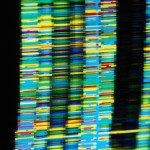Link to Pubmed [PMID] – 25216677
EMBO J. 2014 Nov;33(22):2606-22
HP1 proteins are transcriptional regulators that, like histones, are targets for post-translational modifications defining an HP1-mediated subcode. HP1γ has multiple phosphorylation sites, including serine 83 (S83) that marks it to sites of active transcription. In a guinea pig model for Shigella enterocolitis, we observed that the defective type III secretion mxiD Shigella flexneri strain caused more HP1γ phosphorylation in the colon than the wild-type strain. Shigella interferes with HP1 phosphorylation by injecting the phospholyase OspF. This effector interacts with HP1γ and alters its phosphorylation at S83 by inactivating ERK and consequently MSK1, a downstream kinase. MSK1 that here arises as a novel HP1γ kinase, phosphorylates HP1γ at S83 in the context of an MSK1-HP1γ complex, and thereby favors its accumulation on its target genes. Genome-wide transcriptome analysis reveals that this mechanism is linked to up-regulation of proliferative gene and fine-tuning of immune gene expression. Thus, in addition to histones, bacteria control host transcription by modulating the activity of HP1 proteins, with potential implications in transcriptional reprogramming at the mucosal barrier.



